Here’s a wild thought: why don’t we get the hell out of the Middle East and let the murdering bastards get on with it without us?
By ‘us’ I’m not talking about the Coalition. British and American governments can continue dealing death from the air with their drones and fighter jets; troops, overt and covert, are more than welcome to carry on trying to teach the so-called bad boys a lesson and the so-called good guys how to fight.
No, I’m talking about US. The media.
Until we work out quite where we stand (crouch/hide/retreat?) in this crazy modern form of warfare in which no one knows whose side anyone is on and where an enemy’s major objective seems to be to wage jihad on English-speaking journalists, the media should do a Dunkirk.
I’m suggesting what was previously, professionally unthinkable (and probably still is to the John Simpson/ Kate Adie/ Bob Fisk breed of reporter): I’m saying the media should get out of Iraq, Syria and Gaza and declare a blackout on reporting anything more than political events and diplomatic moves in the Middle East.
Sure, they’ll call me a coward at the Frontline Club, blackball my membership application to the Foreign Correspondents’ Club. . . I might even get my good eye blacked at the Coach and Horses. But I’ve ceased to believe that our presence in the wintry warscape that followed the Arab Spring has ceased to be anything but a hindrance to the prospects of peace.
The public murder-by-execution of US journalists James Foley and Steven Sotloff are what tipped me over. Now British aid worker David Haines has been condemned to decapitation by those same cruel captors.
Prime Minister David Cameron will not accede to terrorist demands; as he made clear at the Nato summit in Wales this week, no ransom will be paid. Thus young Haines, a man inspired by his humanity to help others, is consigned to an inhuman end.
Journalists must, above all, be touched by these despicable acts. As a former Sunday Mirror consultant editor I was numbed by the 2010 battlefield death of that paper’s war correspondent, Rupert Hamer; as an admiring supporter of Marie Colvin’s 2010 Foreign Reporter of the Year award – her second – I was appalled by her murder on the orders of the Syrian government two years later.
But the Foley and Sotloff executions, filmed for YouTube and thence skilfully broadcast to a world of Twitterers, Googlers and blog-watchers convince me that journalists and media managements together should now make the decision which, rightly, a free press would not accept from any government: we should boycott the battlefields in a region that has become, in the words of Committee to Protect Journalists’ deputy director Robert Mahoney, “a killing field for journalists”.
So far in 2014, CPJ says, Syria has been the world’s deadliest country for reporters. Five journalists besides Foley and Sotloff have been killed there this year. About twenty more journalists are currently missing in Syria alone. The exact number is unknown, kept secret by relatives and news organisations who believe publicity will hamper any negotiation
Some may be held for ransom by criminal gangs – one French journalist was released recently, reportedly on payment of $450,000 by his government – but most are believed to be propaganda pawns in the clutches of the savage, internet -savvy Islamic State, which holds British and American hostages for public execution as a means of terrorising a horrified Western public.
And WE, the media – alongside the eager, mindless sensation-seekers of the anti-social media – are the conduits for the terrorists’ terrifying message. We are prolonging war and provoking atrocities by simply Being There.
So I reluctantly suggest something that is anathema to my profession; something that neither US nor British governments can decree, a strategy that only journalists and their employers can enact:
- That we stop publicising these terrorists and their sickening atrocities
- That while maintaining reporting of diplomatic and political developments we cease to report the mindless madness that is the Middle East
- That we, in effect, switch off the oxygen of publicity on which terrorism feeds.
No pictures, no film, no live reporting from the latest appalling war crime site; no newspaper coverage of the latest awful sensation spread across five blood-soaked pages. And no re-reporting of the chilling chiff-chaff that is tweeted with abandon by sensation-seeking sickos.
It is not just journalists such an action would protect; aid workers, soldiers and civilians are equally at risk from the madmen dedicated to defeating the invading Western armies of ‘crusaders’ – for that is how they see us – by terrifying an all-too-easily horrified civilian public in the West.
There is a price to be paid, for sure: massacres will be unseen, acts of appalling criminality will go unreported and brutalised indigenous civilian populations will undoubtedly suffer. But it is their country. We cannot fight their wars for ever, risking mounting death tolls and acts of horrendous cruelty committed upon soldier and civilian alike in the name of a cruel god.
Reporters are no longer accidental victims, in the wrong place at the wrong time, caught out by roadside mines or shellfire to be mourned as truth-seeking non-combatants. We have become targets.
Jihad has been declared on journalists.
David Banks is a former editor of the Daily Mirror and former editorial director of Mirror Group Newspapers.
Email pged@pressgazette.co.uk to point out mistakes, provide story tips or send in a letter for publication on our "Letters Page" blog
